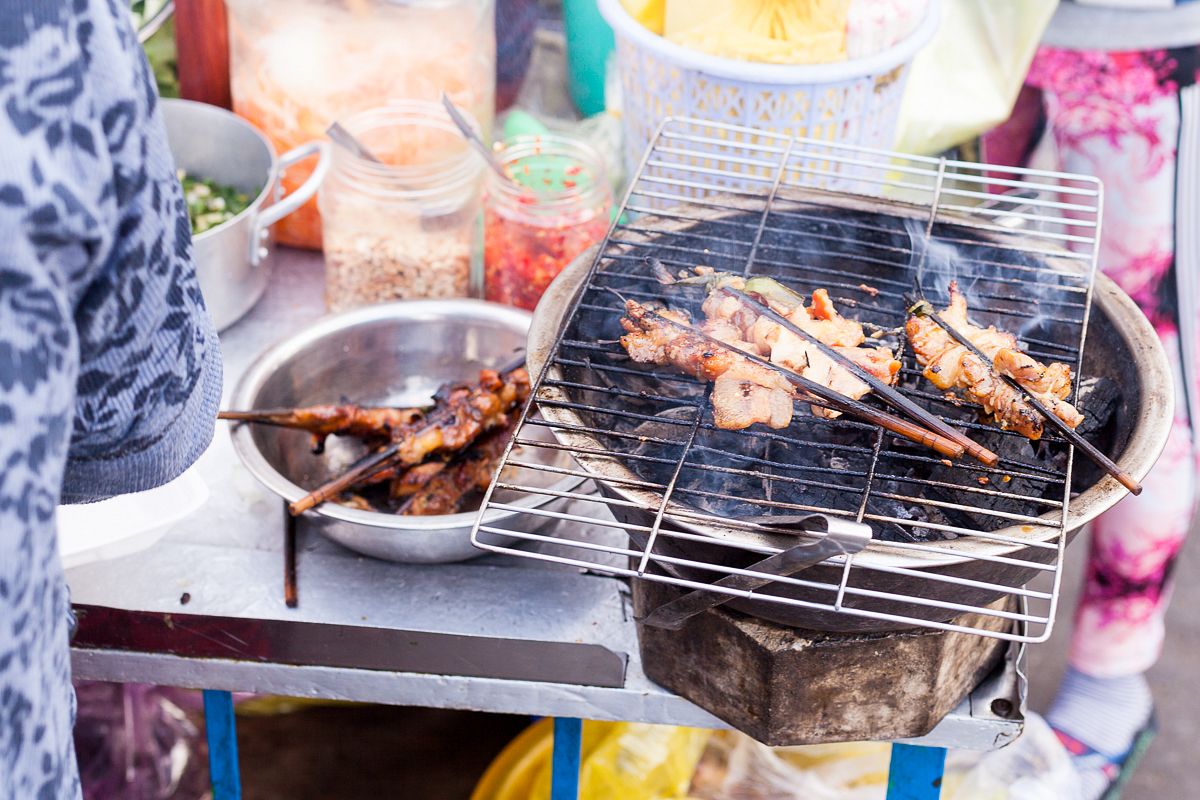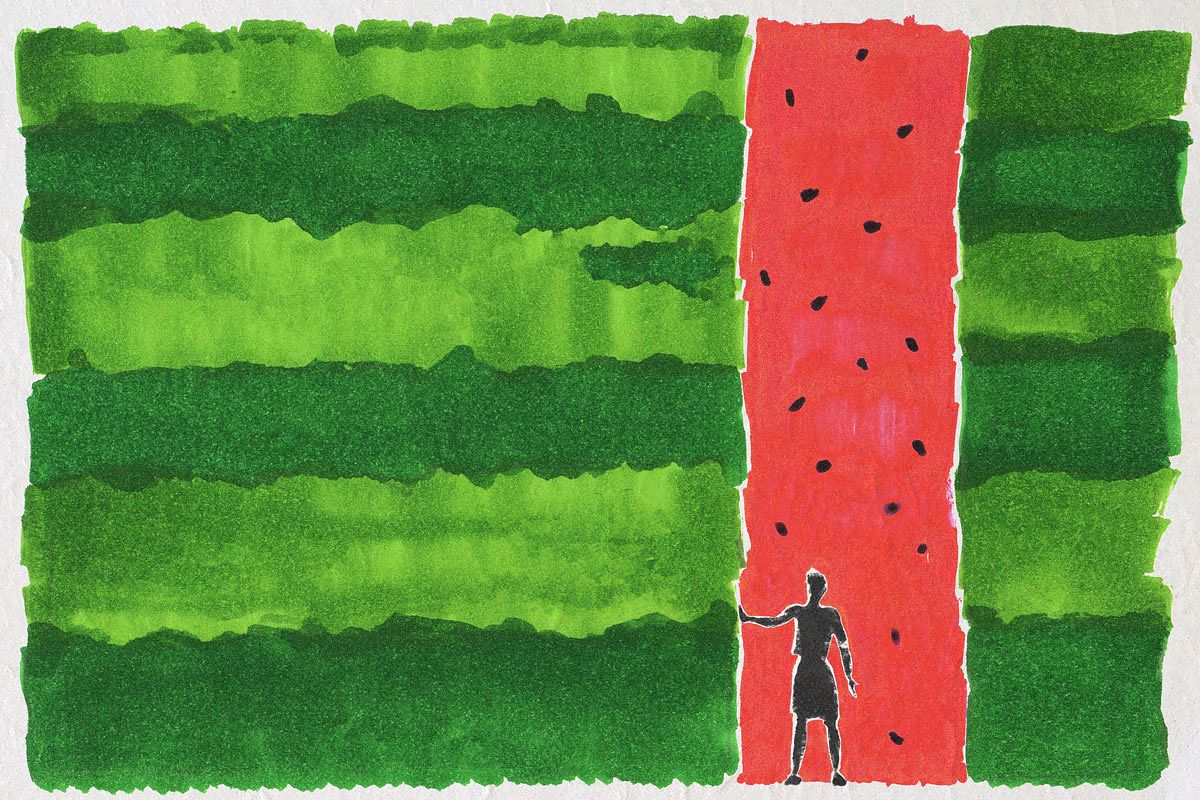Despite its regal title — “the king of fruit” — durian’s taste and distinctive smell have long been a divisive topic among foodies the world over. Originally from the island of Borneo, through time, durian has gradually made most of Southeast Asia its home, from the streets of Thailand to family plantations in Vietnam’s Mekong Delta. Each of the region’s countries has its own tale, rooted in deep local folklore and history, of how the prickly fruit came to be. In Vietnam’s rendition, durian has a surprisingly romantic beginning as proof of a love that stood the test of time.
The fruit’s English name, “durian”, hails from the Malay-Indonesian word duri, or “spike”, and the suffix -an to create a noun. Durian is widely cultivated commercially in Southeast Asia to be eaten fresh or used in desserts. In Vietnam, durian appears in a host of delectable sweet treats, as warm custard on top of xôi or an indispensable component of the famed Thai-style chè.
In a bout of either sheer ingenuity or insanity, a few Thai and Malaysian contraceptive companies even released their own version of durian-flavored condoms. To each their own, as long as they don’t come with the spikes.
Outside of Southeast Asia, however, durian has gained notoriety as the world’s smelliest fruit. For any native son or daughter of the region, it’s rather heartbreaking to witness Southeast Asia’s most famous fruit being subjected to constant ridicule by the likes of Jimmy Kimmel and a slew of BuzzFeed’s “taste testers”, again and again.
The name “king of fruit” is commonly credited to British naturalist Alfred Russel Wallace, whose opinion of the famed fruit was immensely more positive than his descendants’. On the taste of durian, Wallace said in 1856: “It produces no nausea or other bad effect, and the more you eat of it the less you feel inclined to stop. In fact, to eat Durians is a new sensation worth a voyage to the East to experience […] as producing a food of the most exquisite flavour it is unsurpassed.”
Durian’s long-term residency in Southeast Asia has also led to its presence in local folklore. According to blogger Jessie Ponce, a Thai legend believes that durian used to be the most exquisite, delicious and fragrant fruit of all. An old, wise hermit gifted a local king with its seed to the king’s ingratitude. Disgruntled and angered, the hermit cast a curse on the durian tree so that the once-perfect creation grew sharp thorns and started emitting a rancid stench. Thankfully, he was apparently not incensed enough to take away the heavenly taste and texture.
Sumatran and Malaysian folklore have a more enigmatic take on the narrative surrounding durians: they believe that the elusive Orang Mawas – Malaysia’s version of Bigfoot, and Orang Pendek – its Sumatran counterpart, love feasting on durians.
Vietnamese storytellers, however, associate durians with an ancient love story. The country’s legend of the durian started after the Tay Son uprising was squashed by Emperor Gia Long (Nguyen Anh). An unnamed rebel hero became embroiled in a witch hunt spearheaded by Gia Long to eradicate all those who were pro-Tay Son.
Assisted by kind-hearted neighbors, the hero became a fugitive and headed southwards to Chenla, an ancient country which spanned most of today’s Cambodia, southern Vietnam and even parts of Thailand and Laos.
On the way to the foreign land, he encountered a mother and daughter in a tea house. As it turned out, the pair were Buddhist pilgrims on the way to a famous mountain-bound temple, but the daughter caught an illness mid-trip. Our hero, being the Renaissance man he was, also happened to be well-versed in medical practices. He magically cured the damsel off any diseases and took them home on his boat.
Naturally, the maiden was taken with him and they settled down in Chenla in a home with ancient white picket fences and spent their days farming. In their garden, they also planted a tu-rên tree, or durian in Khmer (ធូរេន, pronounced thou-ren).
After ten years of happiness, the couple unfortunately had to part due to the wife’s illness following a trip. After some time, his relatives in Vietnam informed him that Gia Long had stopped coming after old enemies and encouraged him to return home. On the night before his voyage, his wife appeared in a dream, assuring him that she would follow wherever he went.
Coincidentally, their durian tree only produced one fruit that year, which magically fell at his feet before he left for Vietnam. The Viet kieu returned to his old village to the neighbors’ warm welcome. He made a living as the village teacher and planted durian trees all over town.
The villagers, shocked and weirded out by the stink of the strange prickly fruit, were hesitant to taste it. However, after our hero told the story of how he found love in a hopeless place, they were touched by his star-crossed romance and started developing a fondness for the pungent delicacy.
He died three days after the wife’s three-year anniversary under mysterious circumstances. The locals, moved by his love for the ill-fated wife, started calling thouren fruits sầu riêng, which literally translates to "sadness in solitude".















